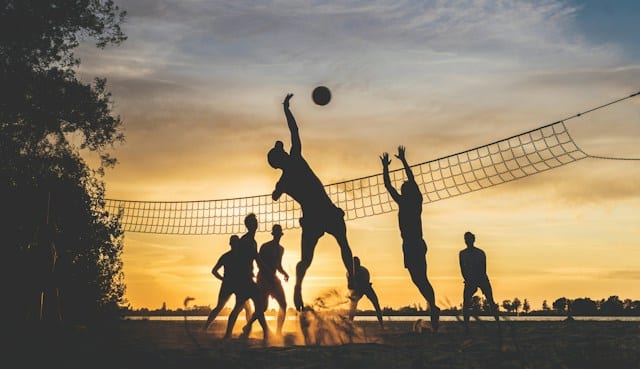Professional sports teams are no longer just about training and winning games. Management and coaches alike are beginning to realize the importance of caring for their athletes’ overall health —both physical and mental— and not just their performance on the field. This shift is giving rise to comprehensive or ‘holistic’ athlete care programs, designed to ensure the well-being and longevity of their sports stars.
Understanding the Importance of Holistic Athlete Care
The first step towards implementing a holistic athlete care program in your sports team is understanding its importance and the role it plays in enhancing the overall performance of an athlete. Athletes are prone to a variety of physical injuries and mental health issues that, if left unattended, can hamper their career and life post-retirement.
A découvrir également : How are sports organizations addressing mental health issues among professional athletes?
By focusing on holistic care, you can create an environment that not only promotes physical health but also fosters emotional and psychological well-being. This approach not only leads to improved performance on the field but also results in happier, healthier athletes who enjoy their sport and are more likely to remain with your team for a longer period.
Incorporating Medical and Mental Health Services
The backbone of any holistic athlete care program is the provision of robust medical and mental health services. Providing immediate and efficient medical treatment for injuries is a given in any sport. However, preventative medicine should also be a significant facet of your health services, with regular checks and screenings to prevent small issues from becoming career-ending injuries.
Avez-vous vu cela : What role does community support play in the success of local sports teams?
Mental health support is equally essential, and yet, often overlooked in the sports sphere. Hiring full-time, in-house psychologists or partnering with mental health organizations can provide your athletes with the emotional support they need to deal with the high-pressure environment of professional sports.
Investing in Athlete Development and Education
Athletes are more than just their sport. They are human beings with aspirations, dreams, and a life outside the sporting arena. As part of your holistic care program, consider investing in development initiatives that allow athletes to grow personally and professionally.
For example, you might want to partner with local universities to provide educational opportunities for your athletes. An athlete might want to pursue a degree in their off-season or prepare for a second career after retiring from sports. By providing access to educational resources and support, you help build an icon who is not just noted for their sporting achievements but also for their intellectual pursuits.
Building a Supportive Team Culture
The culture within a team plays a significant role in the overall well-being of the athletes. A positive, supportive team environment can greatly benefit athletes’ mental health and overall happiness. Encourage your coaches to foster a culture of inclusivity, respect, and mutual support among the team members. Regular team-building exercises can help in this regard.
Also, it is important to remember that athletic performance should not be the sole measure of an athlete’s worth in the team. Celebrate their personal achievements and contributions to the team, regardless of their performance in the game. This will help in building their self-esteem and confidence.
Leveraging Technology
Welcome to the digital age! Technology is a powerful tool that can be used to enhance the efficacy of your holistic athlete care program. For instance, the use of wearable devices can help monitor athletes’ physical health and performance in real time, allowing for immediate intervention if any issues are detected.
Further, make good use of digital platforms such as Google Scholar to access the latest research and developments in sports medicine and athlete care. This will ensure that your team is always up-to-date with the best practices and can provide the highest level of care to the athletes.
Implementing a holistic athlete care program in your professional sports team requires a strategic approach and a firm commitment to the well-being of your athletes. It is not just about hiring the best coaches or investing in top-notch training facilities. It’s about viewing your athletes as whole people, not just performers on the field, and providing them with the comprehensive support they need to thrive in their sport and beyond.
Charting out a Comprehensive Nutrition Plan
Nutrition plays a vital role in the athlete health and performance of professional athletes. A well-balanced, scientifically designed nutrition plan can significantly enhance an athlete’s performance on the field, extend their athletic career, and improve their long-term health. Therefore, incorporating a comprehensive sports nutrition strategy is an essential component of a holistic athlete care program.
A dedicated sports nutritionist should be a part of the sports medicine and science team. This individual’s role is to chart out personalized nutrition plans for each athlete, taking into account their unique body composition, metabolism rate, training regimen, and health goals. The nutritionist should work closely with the athlete and coach to continually monitor the athlete’s health and make adjustments as needed.
Educating athletes about the importance of nutrition and teaching them how to make healthy food choices is another crucial aspect. Athletes should understand how different nutrients impact their energy levels, recovery rate, and overall performance. This knowledge empowers them to make informed decisions about their diet, even when they are away from the team.
Remember, nutrition is not just about fueling the body for the game but also about promoting overall health and well-being. Therefore, the focus should be on whole foods, rich in nutrients, rather than on supplements alone. The right balance of macronutrients (carbohydrates, proteins, fats) and micronutrients (vitamins, minerals) is key to maintaining optimal health and performance.
Nurturing Talent and Strength Conditioning
Strength conditioning is a critical part of a holistic approach to athlete care, particularly for field athletes participating in track and field events. A dedicated strength and conditioning coach is essential in a professional sports team. This professional should be well-versed in designing and implementing comprehensive training programs to improve strength, power, speed, agility, and endurance.
The strength conditioning program should be devised considering the specific demands of the sport and the athlete’s individual abilities and aspirations. It should include a blend of strength training, cardiovascular workouts, flexibility exercises, and recovery sessions. Regular assessments should be part of the program to track progress and adjust the training regimen as needed.
In addition to physical training, talent development should be a core focus of the program. This involves identifying and nurturing the unique skills and abilities of each athlete. Regular feedback and constructive guidance from the coach can play a significant role in this. Creating a positive learning environment, where athletes feel encouraged to try new strategies and learn from their mistakes, can foster talent development.
Furthermore, decision making skills are crucial for elite athletes who often have to react quickly and strategically during games. The strength and conditioning coach can incorporate cognitive training exercises into the program to improve these skills.
Conclusion
Implementing a holistic athlete care program requires a comprehensive game plan that takes into account all aspects of athlete health and well-being. It involves a team of dedicated professionals, including sports medicine experts, psychologists, nutritionists, and strength conditioning coaches, working closely with the athletes and the sports science team. Tools like Google Scholar can be used to stay up-to-date with the latest research and advancements in these fields.
Using a holistic approach means seeing athletes as more than just performers on the field. It’s about acknowledging their unique needs, aspirations, and potential beyond their sporting prowess. It’s also about creating a supportive team culture that values every member’s contribution, regardless of their game performance. Ultimately, a robust holistic athlete care program is not just an investment in the athletes; it’s an investment in the long-term success of the team. An arrow icon pointing towards this approach signifies a forward-thinking, modern sports team that prioritizes the well-being of its athletes.






